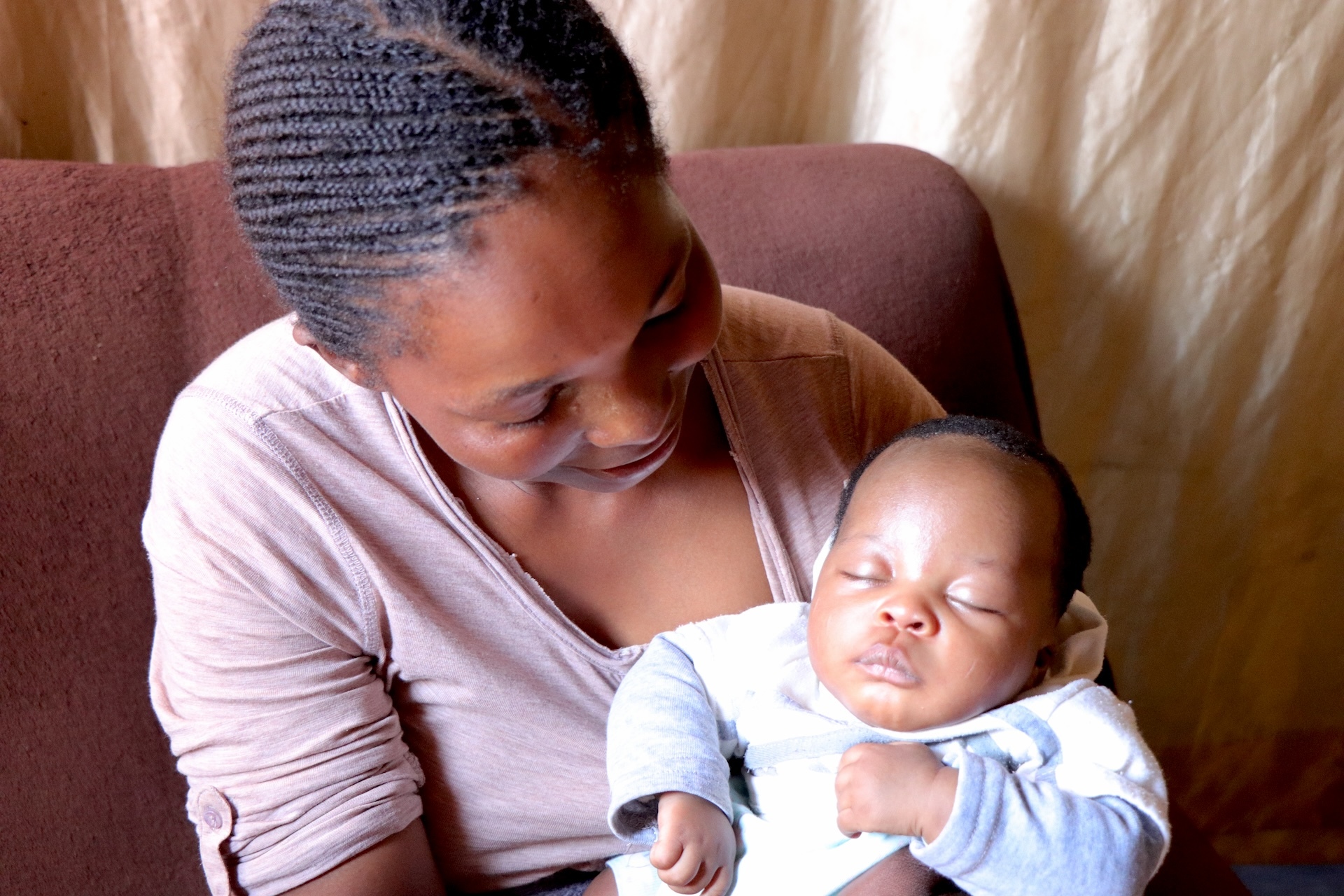 Sister Lerato Tlholane, the nurse-in-charge at Lenkoane Health Centre, works diligently to achieve zero new transmissions among babies born at the facility.Photo: Makopano Letsatsi/EGPAF 2022
Sister Lerato Tlholane, the nurse-in-charge at Lenkoane Health Centre, works diligently to achieve zero new transmissions among babies born at the facility.Photo: Makopano Letsatsi/EGPAF 2022
As the nurse-in-charge at the Lenkoane Health Centre in the Berea district of Lesotho, Sister Lerato Tlholane is committed to achieving the goal of zero babies born with HIV at her facility. With this in mind, all pregnant mothers are asked to test for HIV during their antenatal care visits. This identifies mothers living with HIV, with the aim of starting them on antiretroviral therapy (ART). Nurse Lerato says that this is crucial to preventing mother-to-child HIV transmission.
Unfortunately, that not all pregnant women who test positive for HIV agree to enroll on ART immediately. Some delay and agree later, while some decline treatment and disappear from the clinic and village altogether.
Mother-to-child transmission is a main source of HIV infection in children. Seventy-eight percent of children living with HIV across the world acquired HIV from their mother during pregnancy, labor, delivery, or breastfeeding1. The greatest risk factor for the babies during all these stages is high viral load in the mothers.
Recognizing the danger of the HIV virus to a pregnant mother, Nurse Lerato says that all HIV-positive pregnant women—as well as other newly diagnosed clients—are offered psychosocial support and health education to empower them with knowledge on the benefits of ART and provide sessions to take them through the shock and denial phase to acceptance phase.
 Sister Lerato Tlholane, the nurse-in-charge at Lenkoane Health Centre, works diligently to achieve zero new transmissions among babies born at the facility.Photo: Makopano Letsatsi/EGPAF 2022
Sister Lerato Tlholane, the nurse-in-charge at Lenkoane Health Centre, works diligently to achieve zero new transmissions among babies born at the facility.Photo: Makopano Letsatsi/EGPAF 2022
Why do some women decline ART? Some feel that they are not ready to start lifelong treatment because of fear of stigma and rejection from an intimate partner. Others cite lack of a male partner’s support. Still others are frozen by shock and denial as well as poor understanding of the benefits of the ART.
“As a government clinic, we get such assistance from professional counselors and psychologists with EGPAF [the Elizabeth Glaser Pediatric AIDS Foundation],” says Nurse Lerato.
EGPAF-Lesotho Psychologist Nkhebesoa Nqosa says that a common challenge among newly diagnosed clients living with HIV is disclosure of their positive status to an intimate partner, parents, or in-laws.
“Recently we had a newly diagnosed pregnant woman who reported to clinic and tested HIV-positive but refused ART due to shock and denial,” says Nurse Lerato. “But after a psychologist intervention, the lady returned to the facility a month later and started ART.”
“The mother adhered to treatment throughout her pregnancy and delivered her baby safely in hospital. The baby was born free from HIV and they both go for regular check-ups,” says Nurse Lerato, triumphantly. “The mother is now on six-month treatment subscription. Her viral load was tested in March 2022, and the results shows lower than detectable. Undetectable is untransmissible. At this point the baby is safe, even though they are still breastfed.”
Sister Lerato indicates that this challenge of declining ART among pregnant women happens often—as another woman also declined until she was called with her husband and tested together and were found both were HIV-positive. They agreed to start ART together.
“Our intervention includes, among others, providing health education to the clients and their loved ones on HIV and the benefits of antiretroviral treatment,” says Nqosa. “When the client and the family understand, we help the client to disclose. As long as the client discloses, the family is able to support this person. If the person is supported, starting ART and adhering to treatment is no longer such a problem.”
With high viral load, it is easy to transmit the virus from mother to If the mother is adhering to ART and is virally suppressed, the chance of transmitting the virus to the baby is dramatically reduced, or even zero. #Undetectable=Untransmittable.
EGPAF is implementing Accelerating Lesotho’s Progress to Epidemic Control (ALPEC) in four districts of the country: Berea, Leribe, Qacha’s Nek, and Quthing. The project is implemented through health system strengthening and delivery of comprehensive HIV/TB care, treatment, and prevention services supported by the U.S. President’s Emergency Plan for AIDS Relief (PEPFAR) through the U.S. Centers for Disease Control and Prevention (CDC).
The project purpose is to expand support for the provision of scalable, high-quality, comprehensive, evidence-based HIV and TB prevention, care, and treatment throughout four districts in Lesotho. The overall aim is to assist the government of Lesotho to attain and sustain HIV epidemic control. The ultimate goal is to decrease HIV and TB incidences and HIV and TB associated morbidity and mortality among all populations in Lesotho.
ALPEC’s approach is to identify system barriers and bottlenecks affecting efforts to reach the UNAIDS 95-95-95 targets, and implement strategies to address them.




